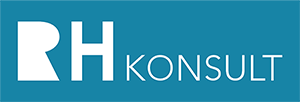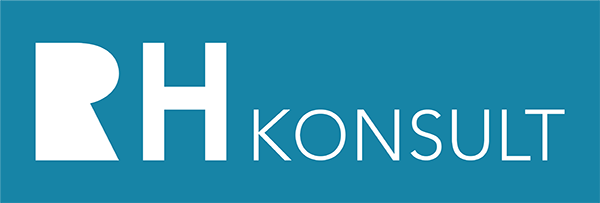[CDATA[ Just expect the seller to counteroffer with a higher home purchase price of … However, buyers are not the only party that must pay fees at closing. There are the costs for closing your loan, which are typically things that don't change. o how does it work when you ask the seller to ‘pay’ for those costs on your behalf? Due to the various lending laws and guidelines, there are precious few things that you can "roll" into the mortgage. What should we do about closing costs? Typical Closing Costs in CT for Sellers . Our seller has a mortgage of $200,000, which he owes the bank, and he wants to sell his home for $300,000. Instead, the seller offers to pay a certain amount by raising the cost of the home. The bigger loan is due to extra cash going towards closing costs, rather than down payment. Real Estate Contracts and Escalation Clauses, Spring Real Estate Newsletter 2020 Heisler & Mattson Properties, Milford, MA Home Sales and Real Estate Market Report (May 2020). var s = document.getElementsByTagName('script')[0]; When selling a 300-600K house, $13 isn't a big deal. gcse.async = true; Disadvantages of Seller Paying Closing Costs . That's right. Rather than asking for a seller credit for closing costs, you pay your own closing costs, $8,750, and the remaining $12,250 (3.5% down on an FHA loan) gets your foot in the door. This one-time fee is paid at closing to your mortgage company. Especially because these closing costs account for 2 to 5 percent of the purchase price! (Remember: if Joe Buyer is buying the home for $300,000 with $3,000 in concessions it means that he could buy the house for $297,000 with zero concessions). Being willing to consider paying some or all of the Buyers Closing Costs increases that pool of Buyers who might not be able to purchase the property otherwise. Lender may not approve price, seller concessions or closing cost credits. Let’s go back to the $250,000 list price scenario, but now there are multiple offers on the table and you need to compete. Yes, the seller occurs expenses, but they are pretty nominal. All set. Closing costs differ for both the buyer and the seller. The total for these fees can be anywhere from 2-5% of the loan amount. I work hard to stay connected. You’ve decided to purchase a home and you’ve saved up for a down payment and closing costs but wouldn’t it be better to just ask the seller to pay the closing costs for you to keep some of that cash in your pocket? "Hey, wait a minute," you say. Here’s typically what each side of the sale is responsible for: Typical Seller Closing Costs. That’s what we’re talking about today, so let’s go! var gcse = document.createElement('script'); In real-estate parlance, It's done at the close. Also, by avoiding banks and other lenders, homebuyers might also pay fewer fees and less in closing costs. An experienced real estate agent, tax advisor, or attorney is a seller’s best bet when it comes to getting an accurate idea of how much they’ll pay in closing costs. No problem, we re-work the paperwork so that the buyer will pay the seller $305,000 and the seller will pay the $5000 back to the buyer for the closing costs. When bidding on a home, you can offer $350,000 and request $3,000 in concessions to cover some of your closing costs. You can offer $206,000 with $6,000 in seller contributions you can use to pay your closing costs. You can always pay it down later, but when cash is tight, this is usually the way to go. The extra tax paid on that 3000 is about $13. Seller's aren't dumb. You’ve decided to purchase a home and you’ve saved up for a down payment and closing costs but wouldn’t it be better to just ask the seller to pay the closing costs for you to keep some of that cash in your pocket? No, the seller isn’t actually paying anything out of pocket. To pay, you can take out a larger loan or ask the seller of the real estate to pay for the costs. When the seller pays closing costs, the money to pay those costs comes from the "Sale" of the home. Instead of coming up with a 5 percent down payment of $4,750 and paying $5,000 in closing costs, he or she just needs to pay a $5,000 down payment. So when you look at a HUD (a settlement statement for a housing transaction), the HUD shows money from the "seller's side" going over to the "buyer's side". Ultimately, the majority of lenders dont care where the money comes from they just want to be paid. So instead of having to take $5000 out of your checking account to pay those closing costs, you can roll it into the mortgage, for about $25/month for the next 30 years. This is a good option as long as you need the cash more than you need to avoid the extra debt. The buyer always pays closing costs. Closing costs for sellers revolve around transferring ownership of the property, verifying their title, and paying off their outstanding balances. "The seller is getting the same net! Hi everyone, welcome back to my channel. If the property doesn’t appraise for the full, $275,000 purchase price then the mortgage company won’t finance the full amount. rate of 4.5% to pay both agents) would be $18,000. Not only are you having to finance much more, raising your monthly payment, the overall interest paid, and the total cash out of your pocket in the end, but the seller is taking a huge risk as well. It all comes out the same for the seller … They countered with $455. Even experienced homebuyers may also lack the liquidity to pay closing costs that can run into the tens of thousands of dollars, especially after they've made a 20% down payment on a conventional mortgage. Rather than asking for a seller credit for closing costs, you pay your own closing costs, $8,750, and the remaining $12,250 (3.5% down on an FHA Loan) gets your foot in the door. Today we’re going to discuss a couple of disadvantages of the sellers paying for your closing costs when purchasing a new home. If inventory is low, you may need to offer over the asking price of the home to get your offer accepted. Accordingly, if you take out a loan for $100,000 you could owe around $3,000 in closing costs alone. You’re a shoo-in, right? The buyer may ask you to pay some or all of their closing costs. Adding the request for closing costs on top of that can present challenges. You’re pre-approved with your lender for up to a $275,000 purchase price and you really love this house. If you are unsure how closing costs really work, this article is for you! We made on offer for $427. As you can see, there are a lot of disadvantages of a seller paying closing costs. But in a competitive market, there are significant drawbacks. See, that was easy, the seller just paid for your closing costs! Not necessarily. Which would you take? (To learn more about typical closing costs, check here). We are willing to lose this deal, but would prefer not to. If the home is listed for $250,000 and the buyer wants to offer full-price and asks for the seller to contribute $5,000 towards closing costs, then the buyer would offer $255,000, therefore netting the seller the full asking price of $250,000. They include processing fees, lender fees, points: all that stuff. House was listed at $479 (close to market). Matt Heisler, //
Air Max Plus 3 Blanche, Lutenist Meaning In English, Capital Punishment In Pakistan Essay, Puffed Rice Side Effects, Douglas County School District Calendar, Gun License Qld Cost,

